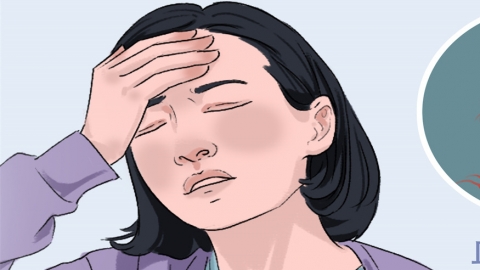What are the causes of prolonged unconsciousness after cerebral infarction?
Generally, coma or unconsciousness after cerebral infarction may be caused by reduced cerebral blood flow, age-related brain function decline, cerebral tissue ischemia and hypoxia, cerebral edema, intracranial infection, and other reasons. If related symptoms occur, it is recommended to seek timely treatment at a regular hospital. Specific analyses are as follows:
1. Reduced Cerebral Blood Flow
Cerebral infarction can cause blockage of cerebral vessels and insufficient cerebral blood perfusion. Due to ischemia, the cerebral cortex function becomes suppressed, leading to coma or unconsciousness. Medications that improve cerebral circulation should be used under a doctor's guidance, such as Butylphthalide Soft Capsules, Edaravone Injection, and Cytidine Diphosphate Choline Sodium Injection.
2. Age-related Brain Function Decline
In elderly patients, brain tissue function naturally declines and has a weaker tolerance for cerebral infarction injuries, making post-stroke coma or unconsciousness more likely. Basic nursing care should be strengthened in daily life, including regularly turning the patient over and patting their back to prevent pressure sores and lung infections.

3. Cerebral Tissue Ischemia and Hypoxia
Cerebral infarction can cause local cerebral tissue ischemia and hypoxia, resulting in metabolic disturbances in nerve cells and reduced excitability of the cerebral cortex, which leads to coma or unconsciousness, possibly accompanied by shallow and slow breathing. Oxygen therapy should be promptly administered to maintain blood oxygen saturation within the normal range. Medications that improve cerebral metabolism should be used under a doctor's guidance, such as Oxiracetam Injection, Piracetam Tablets, and Aniracetam Capsules.
4. Cerebral Edema
Ischemic necrosis of cerebral tissue after cerebral infarction can trigger cerebral edema, increasing intracranial pressure that compresses brain tissue, worsening consciousness disturbances, leading to coma or unconsciousness, possibly accompanied by symptoms such as headache and vomiting. Dehydration and intracranial pressure-lowering medications should be used under a doctor's guidance, such as Mannitol Injection, Glycerol Fructose Injection, and Furosemide Injection.
After cerebral infarction, the patient's immunity declines, making intracranial infections more likely. Inflammatory stimulation of brain tissue can lead to consciousness disturbances, causing coma or unconsciousness, possibly accompanied by symptoms such as fever and stiff neck. Anti-infective medications should be used under a doctor's guidance, such as Ceftriaxone Sodium for Injection, Norvancomycin Hydrochloride for Injection, and Meropenem for Injection.
In daily life, closely monitor the patient's level of consciousness and vital signs, promptly identify abnormalities, and inform the doctor; keep the patient's environment quiet and comfortable, avoiding strong light and noise stimulation; follow the doctor's recommendations for rehabilitation nursing, provide nutritional support to the patient, and promote physical recovery.








